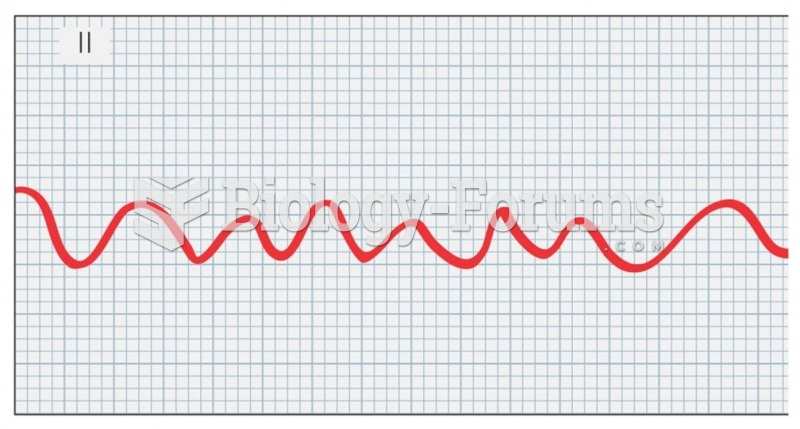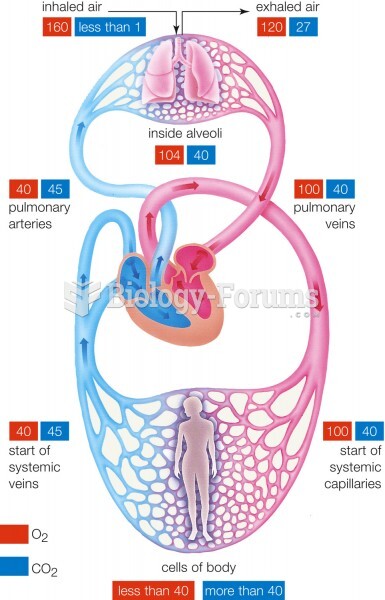|
|
|
Approximately 25% of all reported medication errors result from some kind of name confusion.
A recent study has found that following a diet rich in berries may slow down the aging process of the brain. This diet apparently helps to keep dopamine levels much higher than are seen in normal individuals who do not eat berries as a regular part of their diet as they enter their later years.
Malaria mortality rates are falling. Increased malaria prevention and control measures have greatly improved these rates. Since 2000, malaria mortality rates have fallen globally by 60% among all age groups, and by 65% among children under age 5.
There are more bacteria in your mouth than there are people in the world.
This year, an estimated 1.4 million Americans will have a new or recurrent heart attack.







